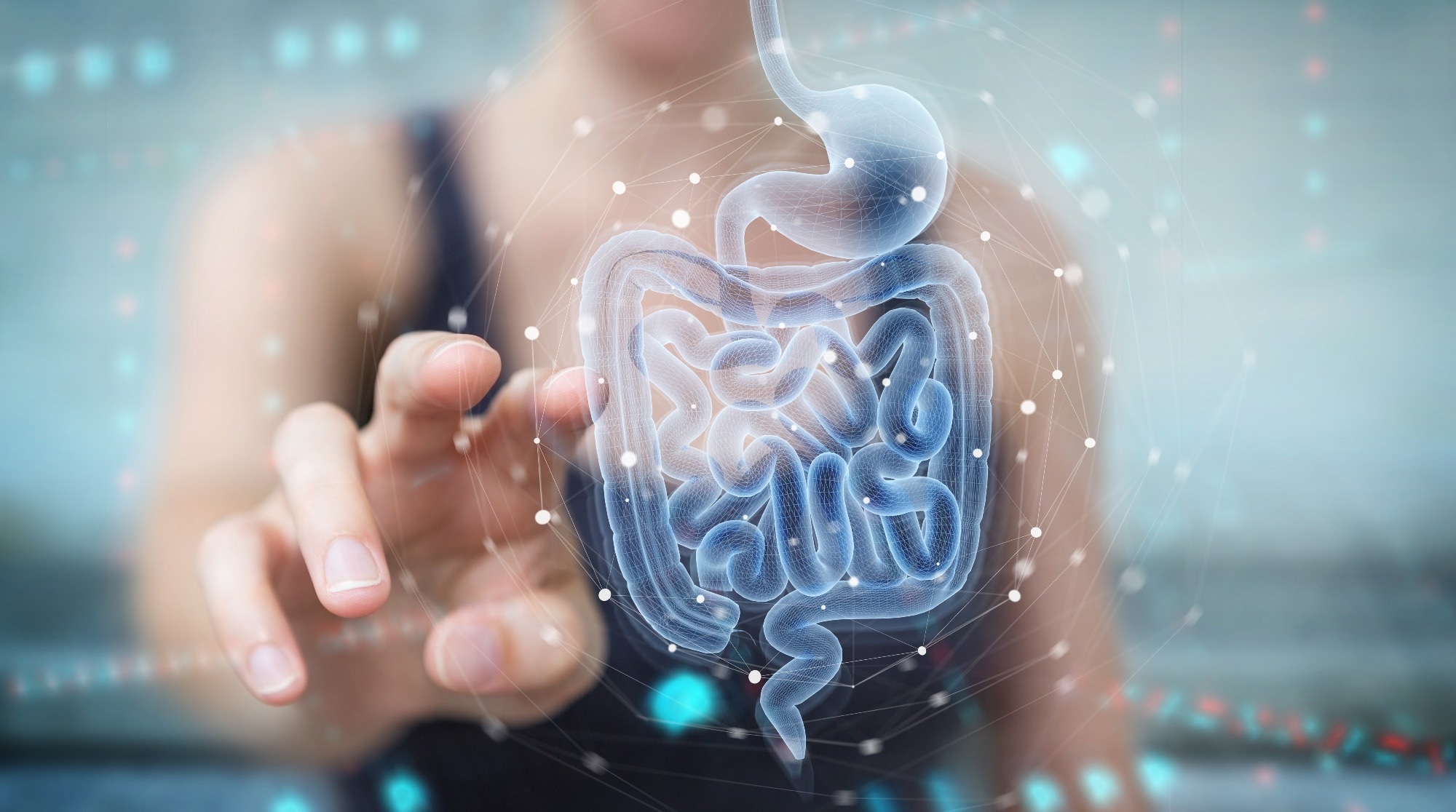To this end, they created two groups comprising people vaccinated with CoronaVac and BNT162b2 COVID-19 vaccines. Next, they collected their blood and stool samples to analyze their gut microbiome composition, serum antibody levels, and immunological and metabolomics data.
The study follow-up lasted over six months and helped researchers evaluate the two-way interaction between gut microbiome composition and COVID-19 vaccination in both cohorts.
 Study: Baseline gut microbiota and metabolome predict durable immunogenicity to SARS-CoV-2 vaccines. Image Credit: sdecoret/Shutterstock.com
Study: Baseline gut microbiota and metabolome predict durable immunogenicity to SARS-CoV-2 vaccines. Image Credit: sdecoret/Shutterstock.com
Background
Studies have shown that immunogenicity to COVID-19 vaccines is affected by multiple factors, including an individual’s baseline gut microbiome composition, gut metabolome, and genetics, to name a few.
The authors themselves reported an association between relative abundances of Roseburia faecis and Bifidobacterium adolescentis and vaccine-elicited anti-severe acute respiratory syndrome coronavirus 2 (SARS-CoV-2) antibody levels one month after a second dose of BNT162b2 and CoronaVac vaccination.
Likewise, another study by Lunken et al. documented negative correlations between the receptor binding domain (RBD) antibody levels at 12 weeks after the first vaccine dose and total gut concentrations of branched-chain fatty acids, isobutyric acid, and isovaleric acid at baseline.
However, the associations between baseline gut metabolome and immune responses to COVID-19 vaccines and how gut microbiome composition affects COVID-19 vaccine-elicited immune protection over a longer term are unclear.
About the study
In the present study, researchers recruited healthy subjects aged ≥18 years from two vaccination centers in Hong Kong who either received the BNT162b2 (n = 121) or the CoronaVac vaccine (n= 40) between April 2021 and June 2021.
They collected their blood samples at baseline (T0), one month after the second vaccine dose (post-vaccination, p.v.), and six months p.v.
The participants self-collected stool samples and sent them to laboratories within 48 hours for deoxyribonucleic acid (DNA) extraction and further analysis.
The researchers subjected plasma from blood samples for serological tests, including SARS-CoV-2 surrogate virus neutralization test (sVNT) and cytokine and chemokine measurements.
They presented sVNT levels at six months p.v. and relative declines in sVNT levels between one and six months p.v. In addition, they dichotomized sVNT levels into high and low at six months p.v.
Next, the team subjected DNA from the stool samples to metagenomic and metabolomic analyses. They computed alpha (and Shannon diversity) and beta diversity (Bray–Curtis dissimilarity) indices, identified Gram-positive (+) and Gram-negative (−) species per criterion specified by the JGI Genome Online Database (GOLD), and calculated the Gram+/Gram− ratio.
Furthermore, the team profiled stool metabolomes by liquid chromatography-tandem mass spectrometry (LC-MS/MS) targeting 400 metabolites and ten short-chain (C2-6) fatty acids in fecal samples.
Results
The study results showed that gut metabolome and microbiome composition at baseline could help predict SARS-CoV-2 neutralizing antibody (nAb) levels up to six months after receipt of two doses of a COVID-19 vaccine.
In the BNT162b2 group, the authors noted a positive correlation between baseline relative abundances of Bacillota bifidum, Roseburia faecis, and B. adolescentis with sVNT levels at six months p.v.
Perhaps at one-month p.v., their beneficial roles were masked by the higher immunogenicity of BNT162b2. Note that B. adolescentis is a key producer of γ-aminobutyric acid (GABA) in the human gut.
In addition, they noted relative abundances of R. intestinalis and R. faecis species were positively associated with sVNT levels at six months p.v. Thus, supplementing these bacteria might help overcome waning BNT162b2-triggered immune responses.
In the CoronaVac group, the authors noted a correlation between a higher relative abundance of Bacteroides and a lower relative abundance of Faecalibacterium prausnitzii at baseline with higher sVNT levels at six months p.v.
Specifically, a higher relative abundance of D. formicigenerans and lower relative abundances of E. massiliensis and A. colihominis in CoronaVac vaccinees drove higher sVNT levels at six months p.v.
Thus, biotherapeutics targeting A. colihominis species might help improve the durability of immunity elicited by the CoronaVac vaccine.
At enrollment into this study, participants had no history of COVID-19; thus, their baseline gut microbiota signature likely primed CoronaVac recipients for more long-lasting immune responses and appeared unrelated to viral infection.
Thus, fumaric acid, derived from dimethyl fumarate, showed a positive association with durable immunity to BNT162b2 and could exert anti-inflammatory and neuroprotective effects.
Similarly, among CoronaVac vaccinees, stool tryptophan levels showed a negative association with long-term vaccine immunity.
Another interesting observation was that abundances of microbial species at one-month p.v. were correlated to long-lasting immunogenicity to CoronaVac but not BNT162b2. Indeed, both vaccines had different mechanisms of action.
Thus, the gut microbiota of the BNT162b2 recipients recovered more rapidly in alpha diversity but also had a higher proportion of species that did not recover to baseline levels at six months p.v. vis-a-vis CoronaVac recipients (58% vs. 21.6%).
Moreover, among CoronaVac recipients, the reduction in gut microbial diversity coincided with markedly decreased gut viral diversity. Due to the same reasons, vaccine history affected durable immunogenicity to BNT162b2 and CoronaVac vaccines differently.
These findings suggested that alterations to gut microbiota composition due to CoronaVac vaccination mimicked those induced by COVID-19 but not the changes related to BNT162b2 vaccination, partly attributable to cross-reactivity with microbial antigens.
CoronaVac is an inactivated vaccine with diverse viral components as epitopes, while BNT162b2 is a messenger ribonucleic acid (mRNA) vaccine using only SARS-CoV-2 spike (S) as an epitope.
Decreased and increased relative abundances of Bacillota/Actinomycetota and Bacteroidota/Pseudomonadota, respectively, were similar across both vaccine groups and corresponded to a reduced Gram+/Gram− ratio p.v, which indicates intestinal inflammation.
This reduction in Gram+/Gram− ratio occurred with depletion in short-chain fatty acids (SCFA)-producing Bacillota species.
Conclusions
To summarize, higher B. adolescentis relative abundance at baseline induced durable immunity to BNT162b2, while a gut microbiota primed by prior vaccination (unrelated to SARS-CoV-2) elicited higher immunity to CoronaVac at six months p.v.
Long-term gut microbiota alterations due to different COVID-19 vaccines warrant further investigations.
Researchers should also monitor the effects of increasing vaccine doses on gut microbiota composition, its recovery, and long-term health in recipients of different COVID-19 vaccines.